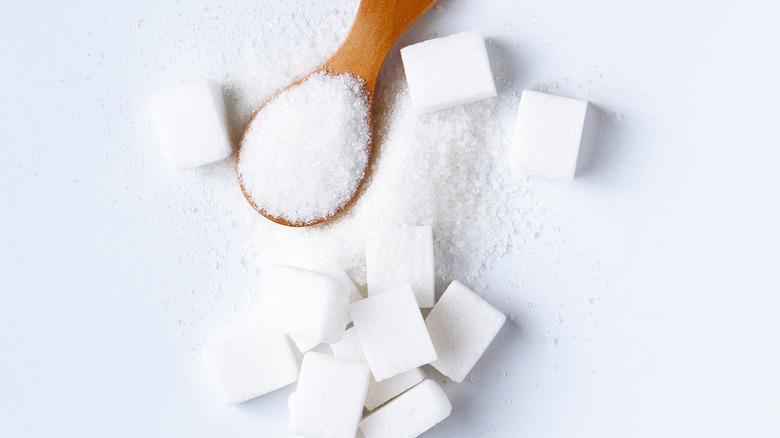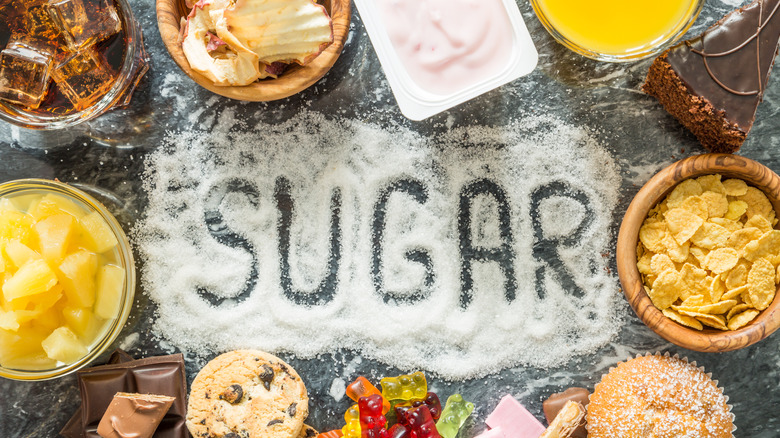The Shocking Amount Of Added Sugar Americans Eat Every Day
The stereotype is that everything in America is sweeter. In October of 2020, for example, NPR reported on how Ireland's Supreme Court decided that Subway could not call its bread "bread" because its sugar contents were so much closer to cake. Or, take soda. As the American Heart Association relays, sodas and the like serve as the main vehicle for filling us with added sugar — 47 percent of all added sugars go in beverages. These include the obvious sodas as well as fruit drinks, energy drinks, and coffees and teas. However, in the last category, it's difficult to tell if they mean that people often add sugar to their coffee and tea or that the chai latte Starbucks serves can have as much sugar as a Snickers bar (per HuffPost). Perhaps it means both.
All of these are less extreme examples of a continual trend. According to Harvard's School of Public Health, the average American eats 22 teaspoons of added sugar per day via foodstuffs with added sugar in them. This converts to 350 calories derived from unhealthy sources. Sugar Science, an authoritative source developed by scientists at the San Francisco branch of the University of California, goes for an even more drastic image. In its findings, the average American eats "nearly 57 pounds of added sugar per person, every year."
There's sugar in almost everything
As you might imagine, these amounts of sugar the average American regularly consumers exceed what the American Heart Association recommends. Specifically, they are more than double the recommended amounts. Men should limit their daily added sugar intake to 9 teaspoons, while women have an even lower recommendation of 6 teaspoons. The reference point they give is that a 12-ounce can of soda can easily have 8 teaspoons of added sugar.
So, how can we reduce our sugar intake? Well, cutting out most sweetened drinks would drastically reduce the amount of sugar you consume. However, Harvard's School of Public Health adds that other foods you should inspect include cereals, pastries, and instant oatmeal, which all tend to have sugar. If you want to reduce your intake here, you should opt for foods without long ingredient lists, as companies tend to mix their sweeteners like dextrose, fruit juice concentrates, and maple syrup with a mass of distracting words.

